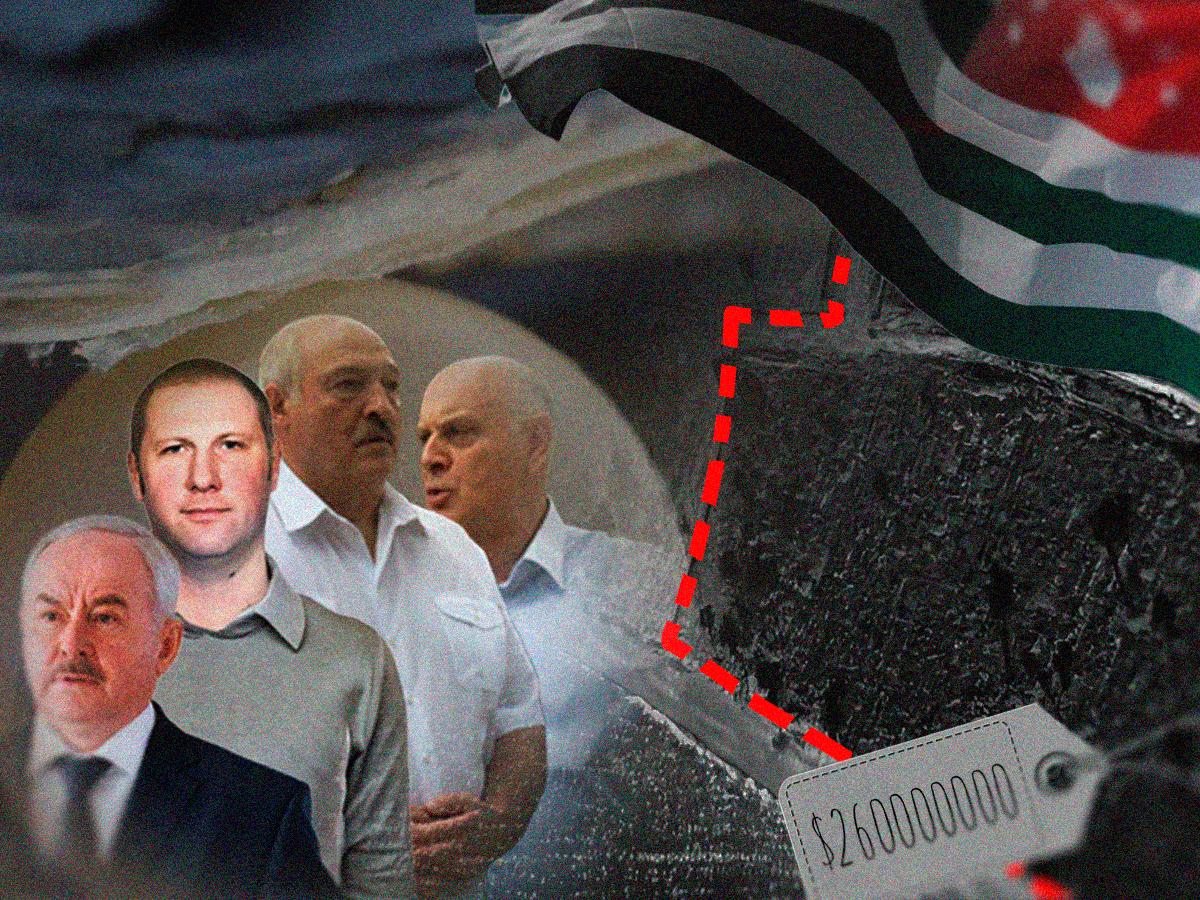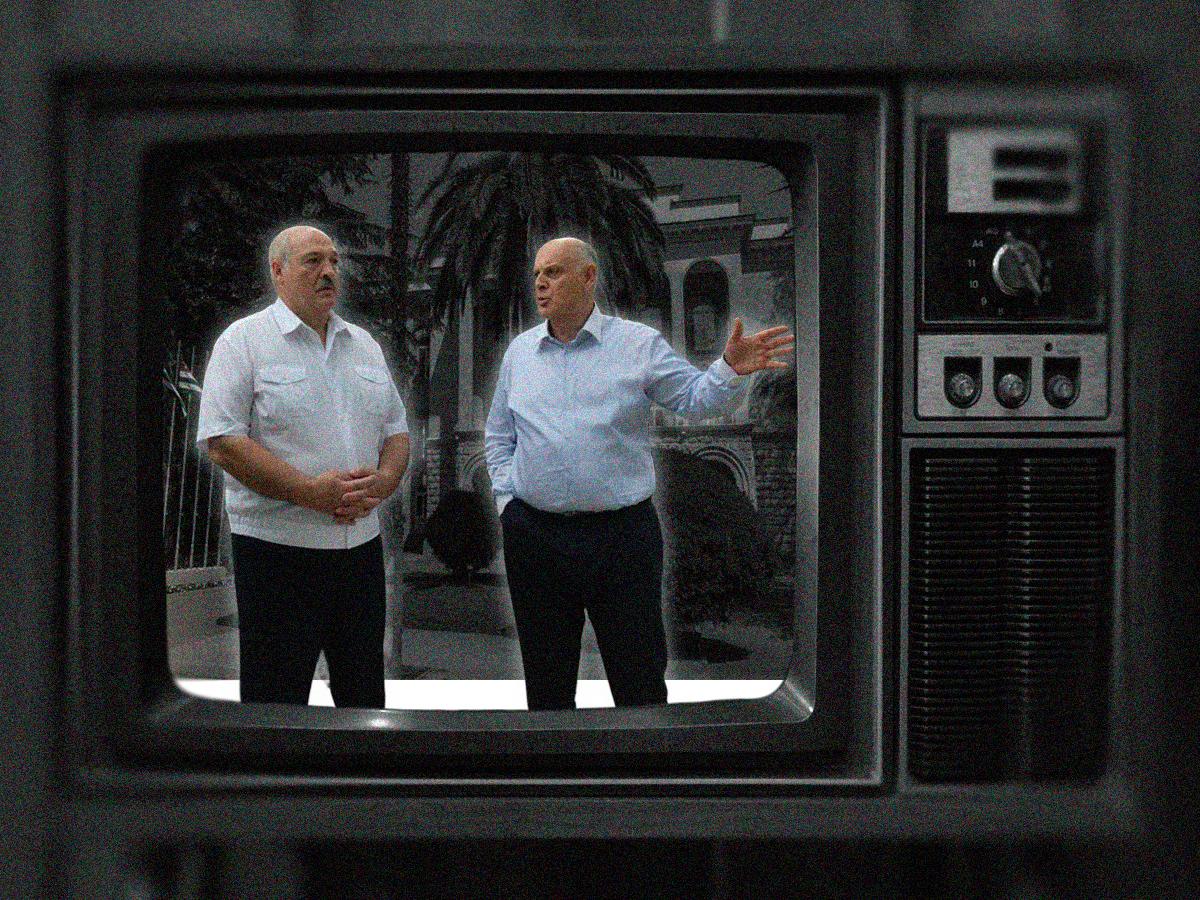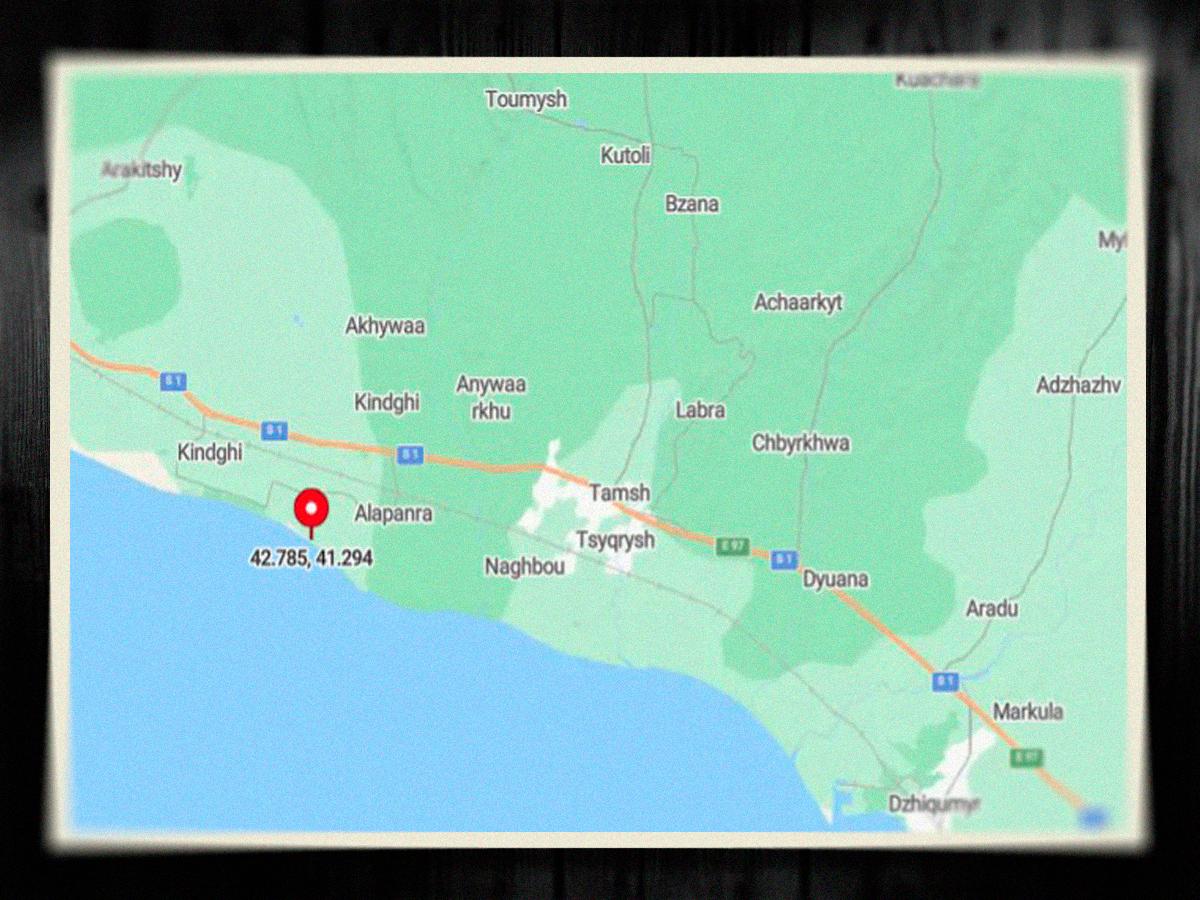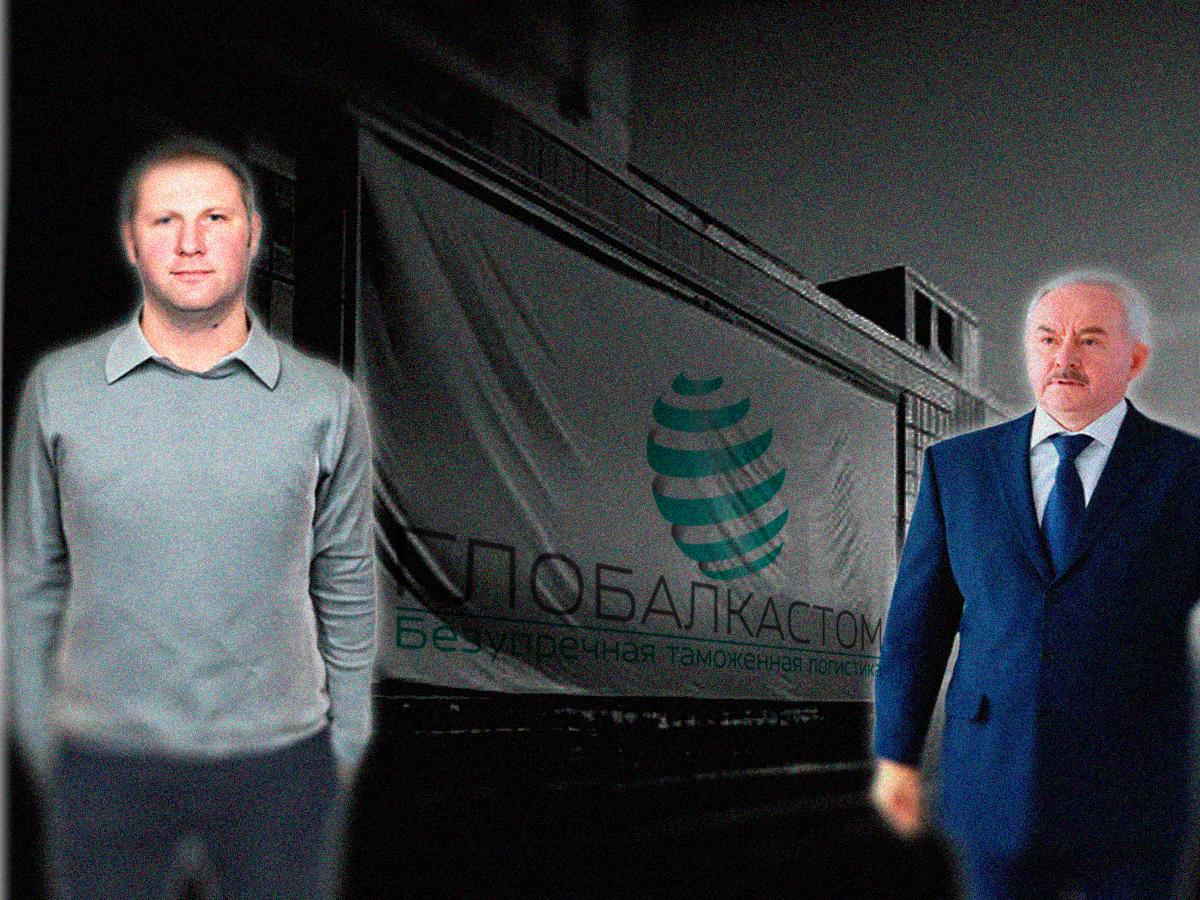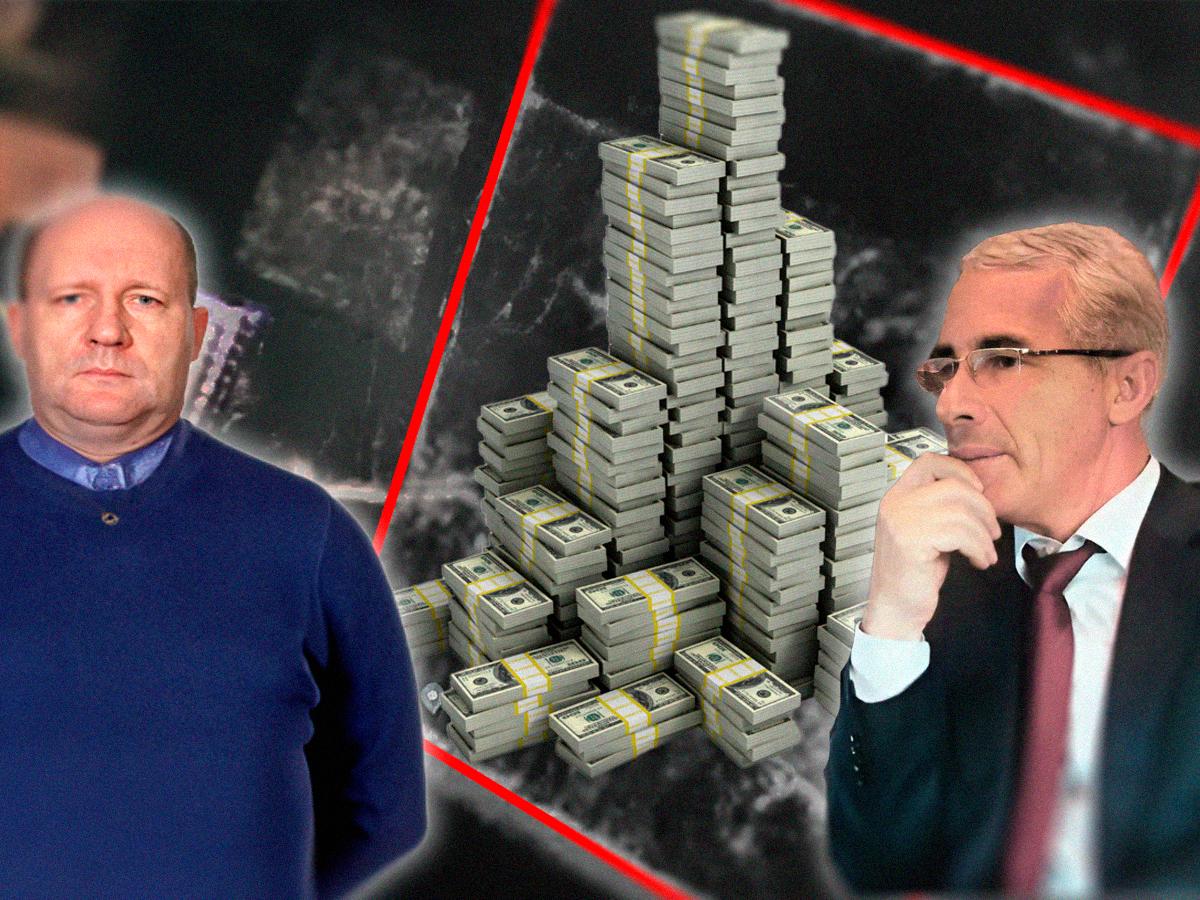This article was produced in partnership with the Association of Former Law Enforcement Officers BelPol, the Belsat TV channel and with the support of CyberPartisans.
In September 2022, Aleksandr Lukashenko made a surprise visit to Abkhazia and met with its leader, Aslan Bzhania. The Belarusian politician became the second head of an internationally recognised state, after Russia, to pay a state visit to a republic that is not recognised by most countries, including Belarus. Earlier, Lukashenko repeatedly said that recognising Abkhazia would cause too much trouble for Minsk and that the Russian side was, in his words, unwilling to compensate for any possible consequences.
In Soviet times, Abkhazia was a popular Black Sea resort, attracting hundreds of thousands of tourists each year.
After the collapse of the USSR, the region declared independence, which led to the 1992-1993 war with Georgia. As a result, Abkhazia became de facto independent of Tbilisi, but fell into international isolation. In 2008, after the Russian-Georgian war, Russia recognised its independence, but most countries, with the exception of Nicaragua, Venezuela, Syria and Nauru, still consider the region to be part of Georgia. Recognition of Abkhazia would lead to international sanctions and a break in diplomatic relations with Tbilisi.
But as the BIC found, there was a good reason, and its importance to Lukashenko outweighed any possible risks to the country. That reason bears signs of corruption.
Promises ranging beyond the Abkhaz budget
Following Aleksandr Lukashenko's visit to Abkhazia, the parties exchanged statements of intent to expand cooperation. The details of these plans, however, were not disclosed.
However, an important decision by Abkhazia's Cabinet of Ministers has surfaced, which adds to our understanding of the reasons for the visit. The day after Lukashenko's visit, on 29 September, the Prime Minister of the unrecognised republic approved a proposal to transfer 20 hectares of coastal land to OOO Zhemchuzhina 2010. For reference, this is area is equivalent to 30 football fields.
A month later, Abkhazian television broadcast a story about the allocation of these 20 hectares of land for a major investment project. The project included the development of a health resort complex in the village of Kyndyg in the Ochamchira District.
"The planned investment volume is 15 billion Russian rubles. OOO Zhemchuzhina 2010 is registered in Abkhazia and is 90% owned by a Belarusian citizen and 10% by a national of Abkhazia", the piece stated.
15 billion Russian rubles (almost $260 million at the exchange rate of 29 September 2022) is more than the annual budget of the whole of Abkhazia. In 2022, its expenditure amounted to almost 13.3 billion Russian rubles. For reference, China granted Belarus a loan of $100 million less in 2015 for the construction of the BelGee automobile plant.
Lukashenko's ex-bodyguard and the mysterious Abkhaz
BIC has found out who exactly owns OOO Zhemchuzhina 2010. An extract from the Unified State Register of Legal Entities of Abkhazia lists two owners: the Belarusian company Termalia and the Abkhazian citizen Dato Kvitsinia. [*]
OOO Termalia was registered in Minsk on 22 July 2022, two months before Lukashenko visited Abkhazia. Its CEO and sole owner turned out to be Aliaksandr Ramanouski, a former employee of Aleksandr Lukashenko's security service. [*]
In one of the earlier investigations, the BIC found that Ramanouski was a co-owner of OOO Globalcustom. This company is linked to Lukashenko's closest associate and former head of the presidential property management department, Viktar Sheiman.
We were unable to obtain any comment from Ramanouski; Termalia does not have an email address, and he did not answer our phone calls.
There is virtually no information in open sources about the second owner of Zhemchuzhina 2010, Dato Kvitsinia. The only mention we could find was an arrest for drunk driving in 2017. His lack of publicity led us to believe that Kvitsinia may be the nominal owner of the company, acting on behalf of others.
A powerful local clan with criminal connections
Dato Kvitsinia confirmed our suspicions. In a conversation with a BIC journalist, he admitted he does not manage the company and was only needed to process documents.
"I have no idea at all... I believe the papers were made in my name. I have no idea of the ins and outs in there", he said.
The co-owner of Zhemchuzhina 2010 added further that he was paid a small amount for formal involvement: "To cover my travel costs, my services, but getting paid up… They didn't give me a particularly large amount".
Kvitsinia also gave the BIC journalist the contact details of the person to whom he had given a general power of attorney. This turned out to be Zorik Chkonia, a former field commander during the Georgian-Abkhazian conflict who was awarded the title of “Hero of Abkhazia”. At the time of publication, he was still the mayor of the village of Kyndyg, where the site for the Zhemchuzhina 2010 project was located. As a Hero of Abkhazia, Zorik Chkonia is a member of an informal consultative body with which the Abkhazian president meets to discuss important decisions for the country (most recently in September 2022).
There are other facts that point to his connection with Aslan Bzhania. Both come from the Ochamchira district. Bzhania was born in the village of Tamysh, 5 km from Kyndyg. According to a representative of the real estate market, the President of Abkhazia is committed to the development of his native region. In 2017, he ran for MP from Kyndyg, and Zorik Chkonia headed the local election commission in these elections.
The BIC tried to contact Zorik Chkonia, but he did not respond to phone calls and instant messages.
The Chkonia family owns a key asset in the area - the thermal springs for which Kyndyg is famous. The resort was founded by Zorik's brother Nugzar Chkonia.
Nugzar left Abkhazia before the Georgian-Abkhazian war of 1992-1993, but still regularly visits this region. The media calls him a confidant of a crime boss nicknamed Poltava, who allegedly controlled the "common cash fund" in Odesa up until September 2017.
The nominal co-owner of Zhemchuzhina 2010, Dato Kvitsinia, who, according to his social media, is the nephew of the Chkonia brothers, also lived in Odesa for some time. According to his profile on Odnoklassniki, Zorik Chkonia graduated from the Odesa Polytechnic University.
Viktar Sheiman is also associated with the city. His son was born near Odesa, and relatives of his ex-wife still live there. One of them, Anna Khmelevskaya, registered the company Globalcustom, which is linked to Sheiman.
The Sheiman "pearl"
It is Viktar Sheiman and his people, not the Chkonia clan or Aliansandr Ramanouski himself, who are actually running Zhemchuzhina 2010. This is proven by correspondence with Abkhazian officials. The BIC learned this thanks to documents provided by the Association of Former Law Enforcement Officers of Belarus BelPol.
In one of the letters dated April 2023, Abkhazia's Minister of Taxes and Duties refers to Mikalai Selivanau as "the managing partner of OOO Zhemchuzhina 2010". Seven months earlier, he was the first deputy head of Lukashenko's property management department. His direct superior from 2013 to 2021 was Viktar Sheiman. [*]
In one of our investigations, we reported that Selivanau continued to work for Sheiman after leaving government service, managing his private business projects.
In another document, also dated April 2023, the Abkhazian Foreign Minister writes to Viktar Sheiman himself, calling him "Special Representative of the President of the Republic of Belarus". The letter discusses the issue of avoiding double taxation for a tax resident of Abkhazia, OOO Zhemchuzhina 2010. [*]
Sheiman, who has not held an official position since June 2021, was present at Lukashenko's meeting with Bzhania in Abkhazia in September 2022 and at the Abkhaz leader's return visit to Minsk in February 2023.
The construction never started
During the discussion of the land allocation in October 2022, members of the Abkhazian parliament warned that if construction did not begin within three years, the land could be seized from the investor. However, two years after the land was transferred to Zhemchuzhina 2010, construction of the resort complex has still not begun. Satellite images taken at the end of August 2024 show that the land remains undeveloped.
At the same time, the project can be considered launched even if activity on the site is a mere formality, according to an explanation provided to the BIC by Abkhazskiye Proyekty company: "No one is going to demand that a serious hotel be built in three years... There has to be some activity. For example, a fence should be built".
At the time of publication, we have not been able to find out what Sheiman and his people plan to do with the land. The fact that they do not intend to return the land to the Abkhazian authorities is indirectly indicated by the regular payment of land taxes. Almost $4,000 was paid in the first nine months of 2023.
The cost of the site can run into millions of dollars. In the area of the village of Kyndyg, it varies depending on the proximity to the sea. For example, 1 hectare of land 100 metres from the water sells for 31 million Russian rubles (about $320,000). Based on this cost, it can be assumed that a 20-hectare plot would cost about $6.4 million. The Zhemchuzhina 2010 plot is right on the Black Sea coastline, and its price is likely to be even higher.



